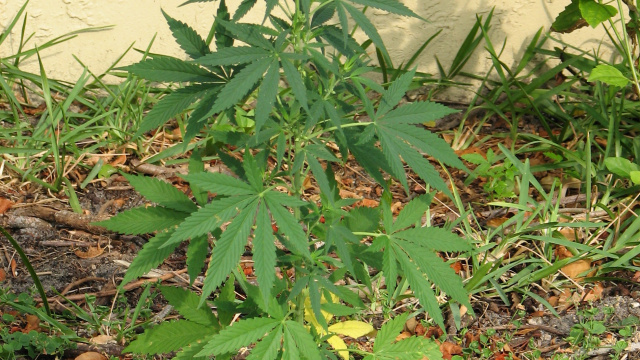 Are you aware that passing Initiative 502 is one of the best ways to reduce international gang violence? Like the violent cartels gripping Mexico, British Columbia is affected by the organized-crime groups which control its huge marijuana industry. These gangs produce and export BC Bud to American consumers, including the 6.8 million residents of Washington state.
Are you aware that passing Initiative 502 is one of the best ways to reduce international gang violence? Like the violent cartels gripping Mexico, British Columbia is affected by the organized-crime groups which control its huge marijuana industry. These gangs produce and export BC Bud to American consumers, including the 6.8 million residents of Washington state.
British Columbian gangs are competing for the revenue they generate from the marijuana-export industry. Economists have estimated the local market to be worth up to $7 billion annually. The fight for these riches explains why Seattle’s former top federal prosecutor, John McKay, has said, “British Columbia-based gangs smuggling high-grade pot are the dominant organized crime in the Northwest.”
In our roles as a public-health physician and a police officer, we have spent most of our careers at the forefront of anti-drug efforts in British Columbia. We have witnessed the bloody aftermath of shootings, stabbings and other violent confrontations that are common in British Columbia’s marijuana industry.
The level of violence that is now accepted as the new normal in British Columbia is staggering. In 2009 alone, there were no fewer than 276 incidents of drive-by shootings in the province. Local police described these shootings as often occurring “without regard for public safety.”
While Canadian laws allow for the use of medical marijuana, possession of the drug for recreational use, even in small amounts, remains illegal. We do not condone illicit-drug use, but our experiences providing medical treatment in hospital-emergency rooms and investigating gang activity have galvanized our interest in reducing violence connected to the illegal-marijuana trade.
By every measure, marijuana prohibition has failed to achieve its stated objectives. For example, the U.S. National Institutes of Health concluded that over the last 30 years of marijuana prohibition the drug has remained “almost universally available to American 12th-graders,” with between 80 percent and 90 percent consistently saying the drug is “very easy” or “fairly easy” to obtain.
U.S. government data also shows that, since 1990, the potency of marijuana has increased by 145 percent and the price has decreased by 58 percent, suggesting that the market for marijuana has become oversaturated. In short, marijuana has become more accessible to young people today than alcohol and tobacco.
Action is long overdue, but Canadian lawmakers have been slow to consider cannabis-policy reform, citing the possibility of retribution from the U.S. Drug Enforcement Agency and the White House. In this context, Canadians have taken a great interest in Initiative 502 and the real likelihood that Washington state will vote to tax and regulate the adult use of marijuana.
From a public-health and community-safety perspective, since marijuana remains illegal in Canada, Initiative 502 has the potential to take away local organized crime’s biggest cash cow.
Starving the local marijuana-industry gangs could have the same impact as ending Prohibition had on Al Capone and others.
In the face of corruption, violence and widespread disrespect for the law, British Columbia voted to repeal alcohol prohibition in 1920. This set an example for Washington state, which followed suit in 1932. With respect to the harms of anti-cannabis laws, Washington state voters could set an example for Canada, while also ending a system where demand for cannabis directly contributes to organized crime and gang violence.
We are hesitant to intrude on the affairs of another nation, yet so many lives are at stake. Initiative 502 is a rare opportunity for the citizens of Washington state to demonstrate international leadership in the field of justice reform. Your northern neighbor, and indeed the entire world, awaits your historic decision.
Dr. Evan Wood is a professor of medicine at the University of British Columbia and founder of Stop the Violence BC. David Bratzer is a Canadian police officer who serves on the board of Law Enforcement Against Prohibition. His personal views do not represent those of his employer.
Source: Seattle Times (WA)
Author: Evan Wood and David Bratzer, Special to The Seattle Times
Published: October 30, 2012
Copyright: 2012 The Seattle Times Company
Contact: [email protected]
Website: http://www.seattletimes.com/



Leave a Reply